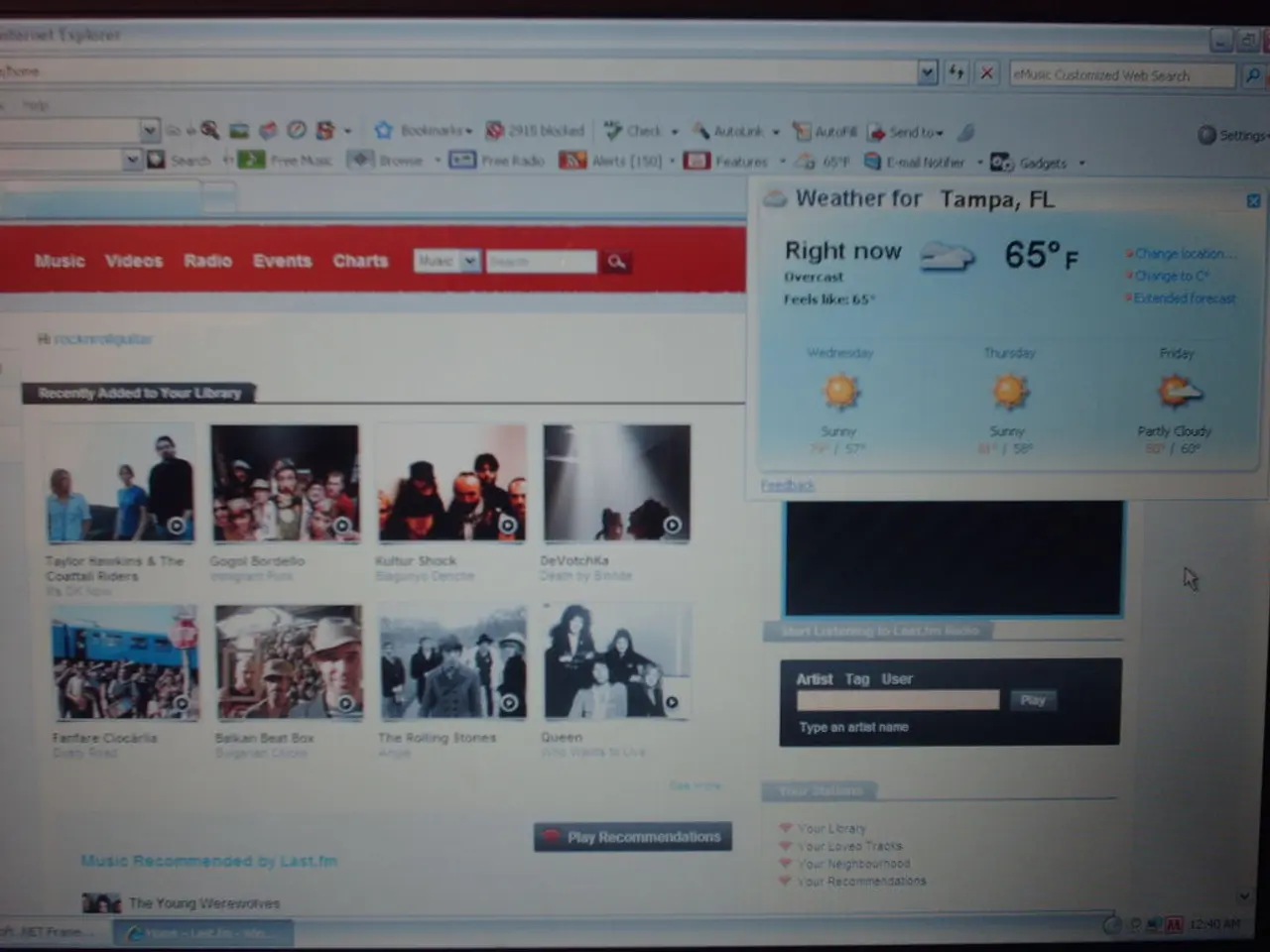Exploring OnlyFans' Content Safety Measures: An In-depth Look at the Platform's Security Practices
OnlyFans, a significant player in the creator economy, employs a multi-faceted approach to safeguard the content and intellectual property (IP) of its creators. This strategy encompasses technical security measures, platform controls, legal enforcement options, and adaptive policies towards emerging threats such as AI-generated content.
The platform's arsenal includes two-factor authentication (2FA) for account security, content privacy settings, content watermarking tools, and stringent data protection policies that prevent the selling of personal data. Creators are empowered to watermark their content freely, which helps identify and make claims against stolen content reposted elsewhere. They can also control account privacy and restrict access to their content selectively.
In response to the challenges posed by AI-generated content, OnlyFans has updated its policies to allow AI-generated material only if it features the verified creator and is clearly labeled as AI. This measure aims to prevent impersonation, protect creators' earnings, and safeguard their IP rights.
OnlyFans utilizes secure authentication (2FA) to reduce hacking risks and tokenized payment processing to keep sensitive payment data off its servers, thereby reducing breach risks. Privacy policies explicitly prohibit the selling of creator data to third parties, thereby limiting unauthorized use.
The protection strategies evolve with the landscape by incorporating watermarking tools for easier detection of leaks and stolen redistribution, enforcing strict AI content policies to minimize misuse and unauthorized impersonation, using secure authentication (2FA) to reduce hacking risks, and limiting data retention and allowing users to withdraw consents related to sensitive information.
Creators also combat leaks through legal tools like DMCA takedown notices, supported by OnlyFans’ framework, helping defend their IP on external leak sites. OnlyFans actively monitors the internet for instances of copyright infringement, employing automated tools and manual review processes to identify unauthorized copies of content appearing on other websites, social media platforms, or file-sharing networks.
Collaboration between platforms, content creators, and legal authorities is essential for creating a more secure online environment and combating online piracy and copyright infringement. OnlyFans complies with the Digital Millennium Copyright Act (DMCA) by designating a registered agent to receive copyright infringement notices and by implementing procedures for removing infringing content from its platform.
Digital Rights Management (DRM) technologies are used to control access to and usage of digital content, restricting how content can be accessed, copied, or distributed. AI and machine learning are playing an increasingly important role in content protection, helping OnlyFans to proactively identify and address content protection issues.
OnlyFans' commitment to respecting copyright law and providing a mechanism for creators to protect their intellectual property rights is evident in its robust content protection system. However, the digital landscape presents unique challenges for content creators, including online piracy, unauthorized distribution, and copyright infringement. To maintain a balance, OnlyFans strives to provide a seamless and enjoyable experience for its users while ensuring the protection of its creators' content and IP.
The platform encourages users to report suspected instances of copyright infringement or other violations of the platform's terms of service. By adhering to these principles, OnlyFans aims to foster a more trusting environment between the platform and its creators, maintain the exclusivity of content, and contribute to the overall sustainability and legitimacy of the OnlyFans ecosystem.
In the pursuit of maintaining cybersecurity, OnlyFans integrates technology such as two-factor authentication (2FA) and tokenized payment processing to enhance account security and minimize breach risks. The platform's digital rights management (DRM) technologies also control access to and usage of digital content, upholding creators' intellectual property (IP) rights and ensuring a secure and sustainable ecosystem.




